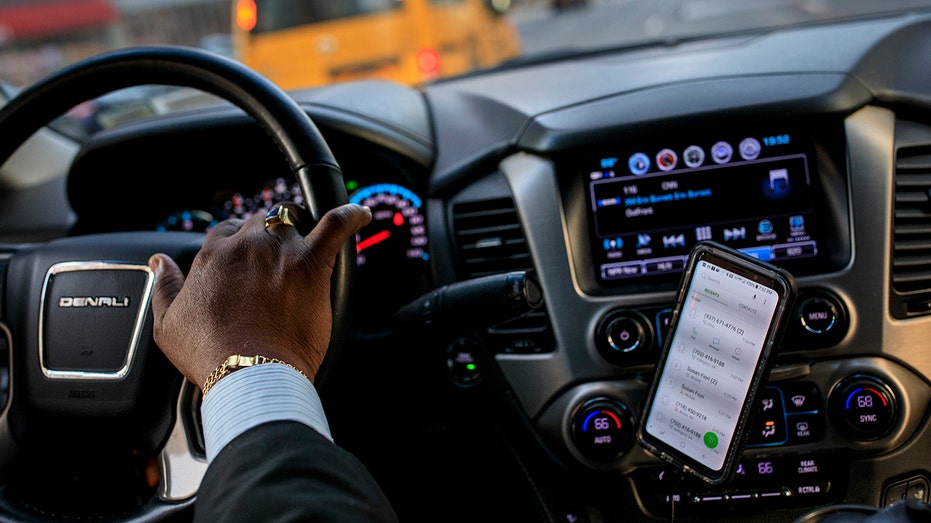
Your Car Is Snitching on You to Your Insurer
Automakers are collecting driving data from customers and quietly providing it to insurance companies, and the practice has resulted in some unassuming drivers seeing their coverage increased or even terminated due to the practice, a new report reveals.
The New York Times reported this week that car manufacturers like General Motors and Ford are tracking drivers' behavior through internet-connected vehicles, and sharing it with data brokers such as LexisNexis and Verisk, which create "consumer disclosure reports" on individuals that insurance companies can access.

The consumer reports do not show where a driver has traveled, but they do provide information on length of trips and driving behavior, such as "hard braking," "hard accelerating" and speeding. Insurance companies can use those reports to assess the risk of a current or potential customer, and adjust rates or refuse coverage based on the findings.
The Times highlighted the case of Kenn Dahl, the driver of a leased Chevrolet Bolt, who learned he and his wife's driving habits were being tracked when an insurance agent told him in 2022 that his LexisNexis report was a factor behind his insurance premium jumping 21%.
"It felt like a betrayal," Dahl told the newspaper. "They’re taking information that I didn’t realize was going to be shared and screwing with our insurance."

Chevrolet Bolt electric vehicles at a dealership in Colma, California, on Jan. 26. (David Paul Morris/Bloomberg via Getty Images / Getty Images)
The automakers and data brokers say they do not collect the information without customers' consent, but many consumers are unknowingly agreeing to the data collection when they sign off on disclosures without reading the fine print, the Times reported.
A Mozilla report from September of last year sounded the alarm over auto manufacturers' privacy policies, and pointed to carmakers sharing drivers' data with insurance companies and law enforcement, as well as a slew of other concerns.
"Modern cars are surveillance-machines on wheels souped-up with sensors, radars, cameras, telematics, and apps that can detect everything we do inside — even where and when we do it," the authors wrote.
Mozilla suggested the practice of automakers sharing information with insurance companies may be optional now but could soon become "all-but-mandatory soon because of its widespread government support," but some lawmakers are pushing back.

Traffic on North Capitol Street in Washington, D.C., on Sept. 20, 2023. (Bill O'Leary/The Washington Post via Getty Images / Getty Images)
Following the report, Sen. Ed Markey, D-Mass., sent letters to 14 automakers urging them to implement stronger privacy policies for consumers, and last month he asked the Federal Trade Commission (FTC) to investigate car manufacturers' data collection practices.
"With new advances in vehicle technology and services, automakers have been vacuuming up huge amounts of data on drivers, passengers, and even individuals outside the vehicle," Markey wrote FTC Chair Lina Khan.
"Based on public reporting and responses to my own inquiries into these practices, automakers face few, if any, limitations on the collection, use, and disclosure of this data," he continued. "Consumers are often left in the dark."
Consumers can find out what data their vehicle is capable of collecting by submitting the vehicle identification number (VIN) at https://vehicleprivacyreport.com/.
Drivers may obtain their LexisNexis consumer disclosure report by requesting it at https://vehicleprivacyreport.com/, and Verisk reports may be requested at https://fcra.verisk.com/#/.
Ford shared a statement following the publishing of this report, clarifying that it does not share data with LexisNexis or Verisk.
"Ford does not transmit any connected vehicle data to LexisNexis or Verisk," the statement reads. "We had previously announced exploratory partnerships with them for usage-based insurance (UBI) programs but they have never launched for customers."











